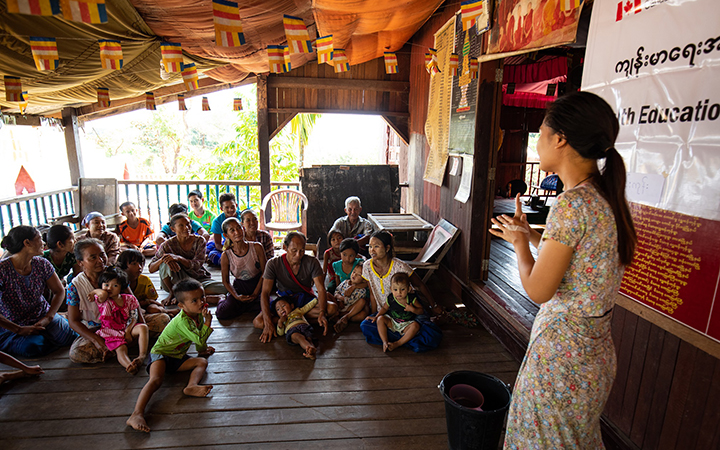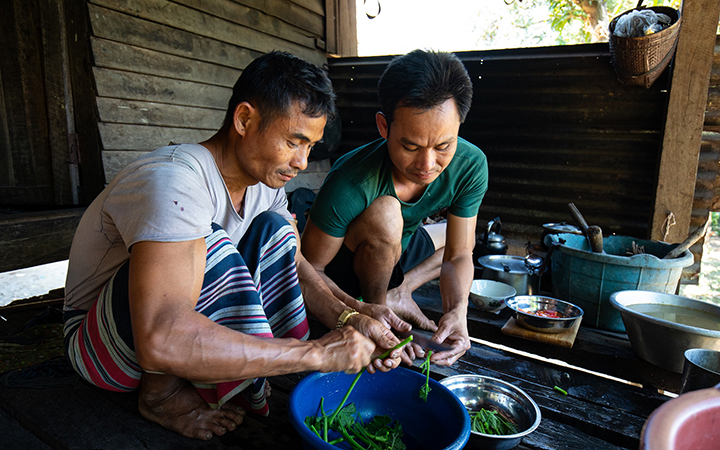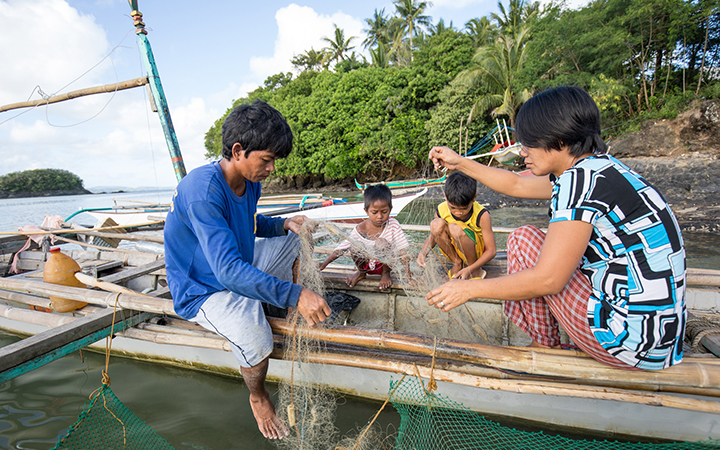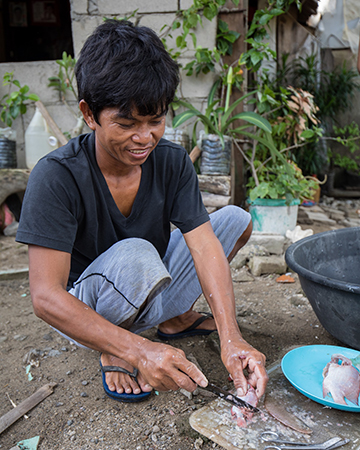Programs show importance of sharing household duties

Working as a gender-equality advisor for ADRA Canada, Mahider Yeshaw sees the negative impact of women's responsibilities as caregivers on their physical and mental health. The single mother faces her own domestic obligations at the end of her workday, with an exhausting "second shift" looking after her home and 3 children.
"Caregiving is a universal phenomenon: it affects every woman," says Yeshaw. At home, she's "socializing" her 12-year-old son to participate in such household tasks, she says, "to break generationally perpetuated norms" that women and girls do more care work. "Now he's able to cook, he's able to clean, he's able to do laundry and fold clothes," she reports.
ADRA Canada employs much of the same strategy in many of its 57 projects in Canada and overseas designed to help people lift themselves out of poverty. Yeshaw says getting men to share in caregiving duties and ensuring a "fair distribution of unpaid care work" is important to the organization's programming. This includes projects that focus on everything from water and sanitation improvements to strengthening climate-change adaptations to enhancing sexual and reproductive health.
Women are expected to fulfill 3 roles, Yeshaw explains. These include a productive role that is generating income for the household; a reproductive role, including child-rearing and unpaid care duties; and a community role, where they contribute to the community voluntarily.

ADRA Canada EMBRACE programming in Myanmar includes training sessions that teach women and men the importance of fairly distributing care work. Credit: Frank Spangler
"In most of our projects, we see that women are tangled between these 3 activities," Yeshaw comments. That's because caregiving is "really important for the maintenance and the continuation of the family, but it's highly unacknowledged and undervalued, as it doesn't translate into money."
Yeshaw, who grew up in Ethiopia and came to Canada 6 years ago, settling in Toronto, says that countering these rigid and complex gender dynamics requires different strategies. These include making services accessible to women and showing men the benefits of sharing household tasks and decision-making with their partners.
Women who get help at home benefit emotionally and physically, Yeshaw says. "They have time for self-development, they can extend their education, they can go out and work," she explains. "Gender-equal households are healthier and happier."
Engaging men and boys in caregiving has led to lasting change in ADRA projects supported by Global Affairs Canada. These include EMBRACE, an initiative focused on reducing maternal and child mortality in remote areas of Cambodia, Myanmar, the Philippines and Rwanda.

Man Kyaw Thar Awar (right), a farmer in Hpa-An, Myanmar preparing his family's evening meal.Credit: Frank Spangler
While such projects include activities like building new health clinics and training community-health workers, changing men's attitudes is a central component, Yeshaw says. To do this, ADRA organizes men's groups and sensitizes community and religious leaders, most of them men, about the importance of caregiving. It also promotes "male champions" who share in household management, childcare, nutrition and other tasks. This is "highly influential" in changing the mentality that "unpaid care work is only for women and paid work is only for men," she explains. "It's really important to have a continuous effort to tackle these patriarchal systems."
Such efforts have brought about lasting behavioural change. For example, Man Kyaw Thar Awar, a farmer in Myanmar, learned from EMBRACE that caring for his 3-year-old daughter involves more than making sure she's safe and fed. He and other fathers in his group learned that "as parents, we need to show kindness and patience toward our children, giving them many experiences that will develop their self-worth and self-confidence," Awar says.

Mary Ann and Dannis Bisco, who live on the island of Sumaoy in the Philippines, share responsibilities like mending fishing nets. Credit: Frank Spangler
EMBRACE training meant a lot to Mary Ann and Dannis Bisco in the Philippines. "We learned that when couples share tasks and responsibilities in the home, it can really help the family and marriage to grow stronger," says Mary Ann, who works part time as a health worker. Dannis, who fishes for a living, "helps out with things like washing clothes, and I am helping him mend his fishing nets," Mary Ann says. "We both now have a much better understanding of the roles that each of us used to shoulder on our own."
Yeshaw notes the COVID-19 pandemic has "made things worse for women." That's because they're expected to care for the sick, they must manage with fewer resources and they must deal with the "toll of the crisis on the family's emotional health."
Focusing on equitable gender roles can help both in the current crisis and in the long term, she says. For instance, an ADRA Emergency Water Sanitation and Protection project supported by Global Affairs Canada in 2 regions of Sudan's Blue Nile state focuses on making care work more manageable for women. Locating water, sanitation and hygiene facilities closer to homes improves life for women and girls in the area, who had to travel 4 hours round-trip to collect water. The project also bolsters women's confidence by giving them equal representation, even leadership roles, on its advisory committees. They additionally get training and jobs as water technicians.

Dannis Bisco takes part in household chores like cooking. Credit: Frank Spangler
The project's sensitization approach uses existing structures such as traditional coffee ceremonies, called jabanas, where women discuss their challenges. "They talk about domestic violence, they talk about unpaid care work, they talk about their kids, they talk about nutrition, they talk about sexual and reproductive health," Yeshaw explains.
The project enlists religious leaders to encourage men to get more involved in household chores. The program's goal is to make it part of the school curriculum "to teach the community that gender equality starts from a very early age," says Yeshaw. This is very similar to the cooking and cleaning lessons she gives her 12-year-old son.
The ultimate objective is to bring about changes in gender norms and sustain them, she adds. "If we build the capacity of the community and if we develop policies and capacities at the grassroots level, this will take us a long way."
- Date Modified: